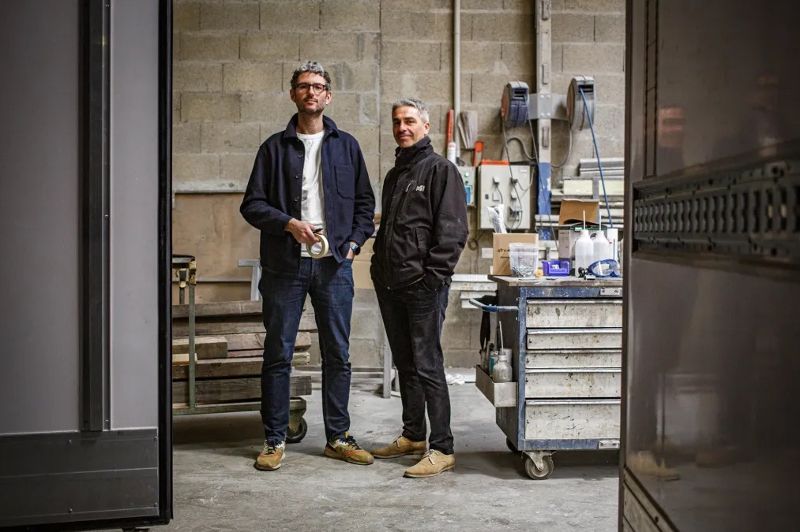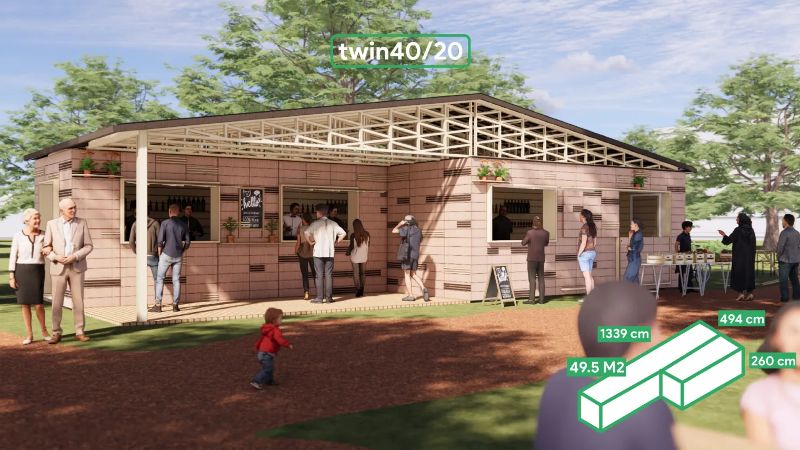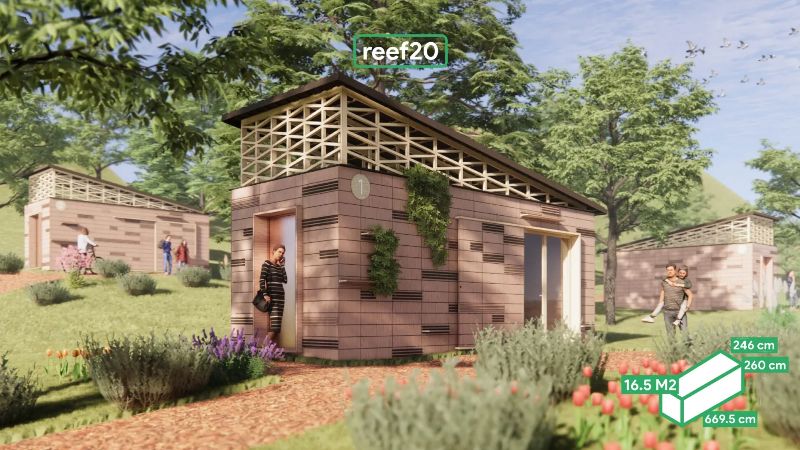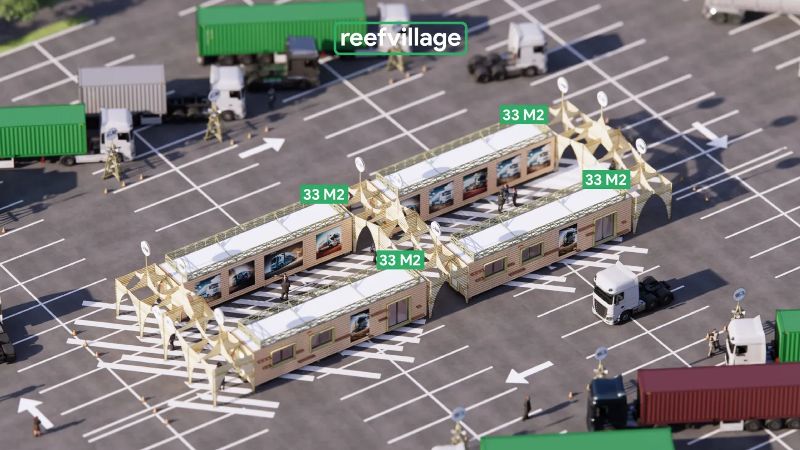

Adaptive reuse of refrigerated trailers into modular buildings
In a creative business venture, French ‘end-of-life’ refrigerated truck trailers are prime candidates for adaptive reuse into accommodation for seasonal workers and pop-up bars for festivals. (Image credit: Regoods.)
Regoods, based in Lyon, is collaborating with Lamberet, a major refrigerated trailer manufacturer in France, to develop this innovative approach.
The refrigerated trailers, which typically weigh around 40 tonnes and travel on the main roads of France, have a bureaucratic lifespan limit. Every 12 years, the cooling boxes must undergo an extensive inspection for recertification, regardless of their performance. Consequently, most of these trailers are sold at low prices and exported to Africa, where they continue to be utilised until they eventually break down and are discarded. However, the partnership between Regoods and Lamberet has given these trailers a new lease on life as modular buildings.

Alexandre Dufrenne, one of the co-founders of Regoods, explained their approach: “The wheels, refrigeration unit, and chassis are taken by Lamberet, and we are left with the floor, insulated walls, and ceilings. From this, we have developed a system, using timber cladding outside and inside, to give us light modular buildings, which are obviously very well insulated.”

The company is currently renting out the modular buildings for events like music festivals to test the concept. Their future plans include expanding into housing, similar to mobile homes, by 2025. Early clients have included breweries that have utilised the units as mobile bars.

Dufrenne emphasised the benefits of reusing these trailers, citing their strength to support the weight of frozen food, excellent insulation through non-biodegradable foam (which can only be destroyed by burning), and a greener approach to handling old trailers, which aligns with the importance of addressing climate change, adaptive reuse, and minimising waste.

Designed by co-founder Mattia Paco Rizzi, an architect, the modular buildings are delivered to the site on a truck equipped with a crane and installed on light foundations. The process is quick and efficient, providing customers with fully-equipped modular structures in less than a day’s work. Rentals are priced at around €1,000 (AUD $1,640.00) per month. At the end of the lease, Regoods lifts the unit off the foundations and back onto a truck for removal.

The target audience for their modular buildings are primarily seasonal workers who need accommodation in areas with extreme temperatures. Though the prices have not been confirmed, they are expected to be around €50,000 (AUD $82,000.00), and the company is hopeful that all units will meet RT2020 building standards.
RT2020 buildings standards are a set of French regulations designed to help reduce and offset carbon emissions.